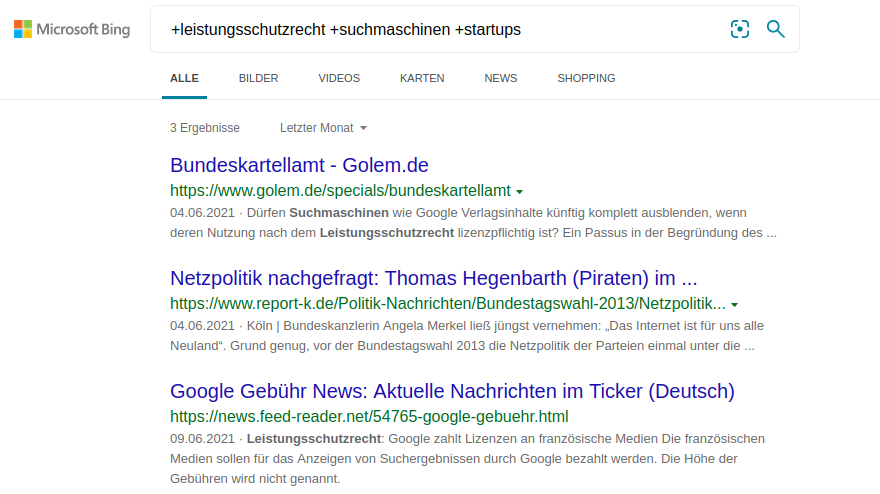
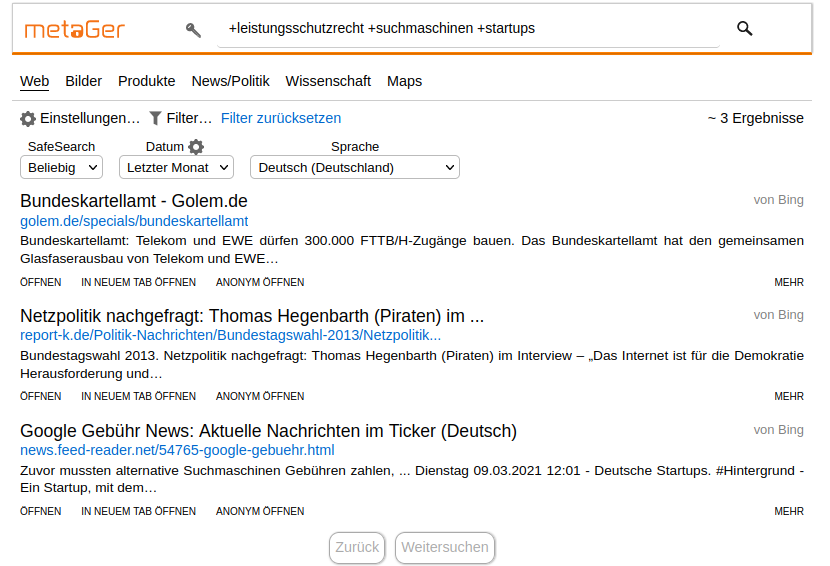
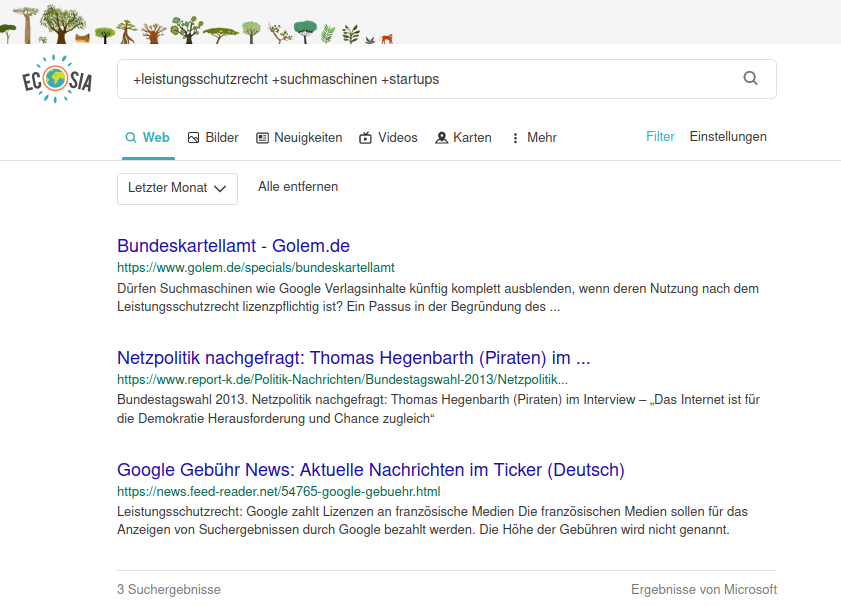
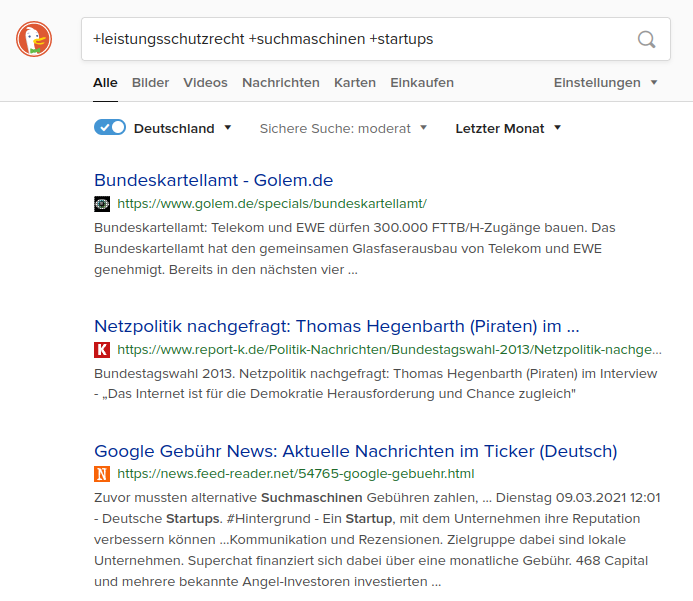
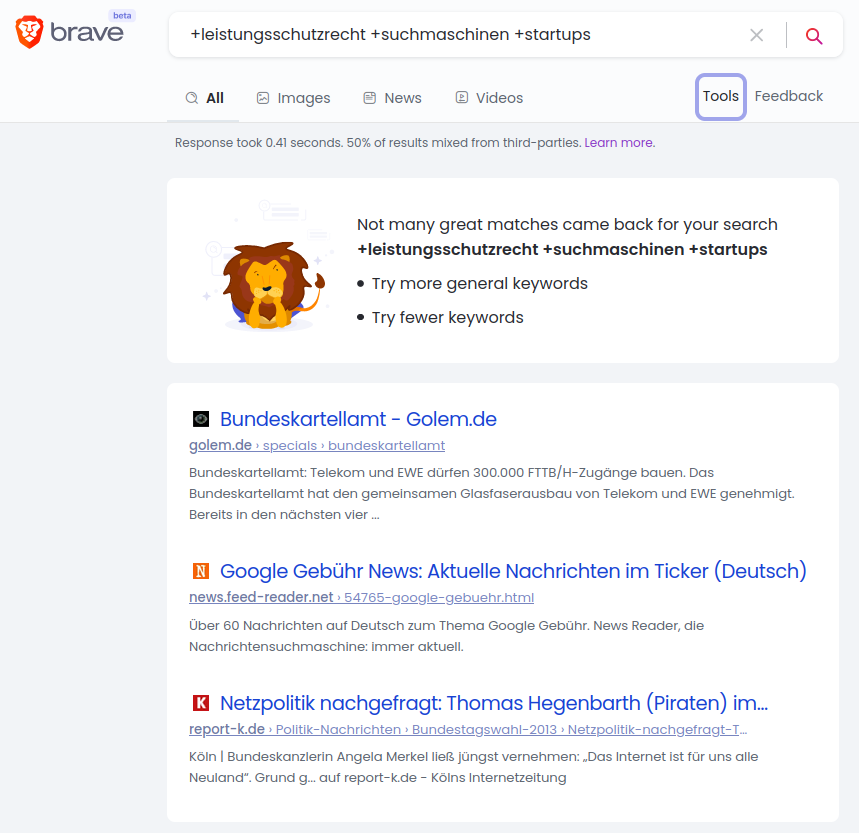
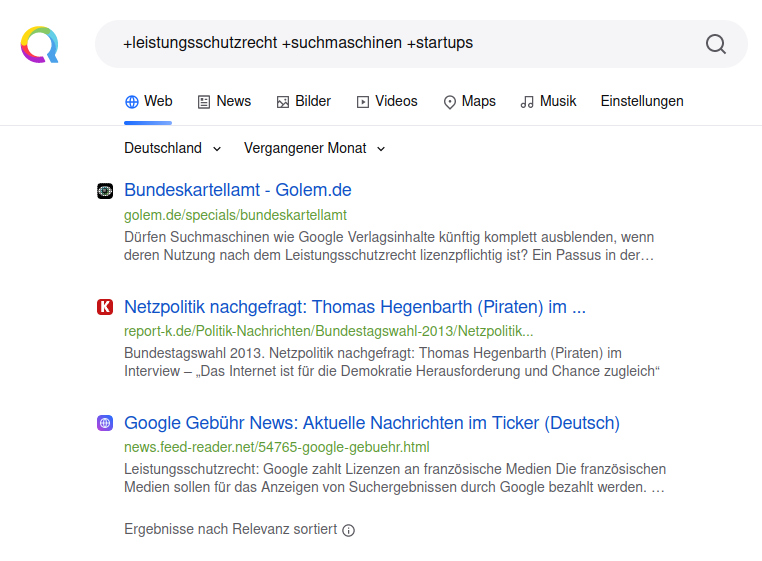
Here I do a little experiment showing that all investigated alternative search engines are infact search proxies and fully dependent on MS Bing search results. Moreover Qwant and Brave Search mislead users by stating that they alledgely operate their own index and technology -- which is in contrast to empirical data.
Let me cite Wikipedia (accessed June 28, 2021):
A search engine normally consists of four components e.g. search interface, crawler (also known as a spider or bot),indexer, and database. The crawler traverses a document collection, deconstructs document text, and assigns surrogates for storage in the search engine index. Online search engines store images, link data and metadata for the document as well.
Crawling the web and indexing the documents and returning results (which mostly includes non-trival ranking algorithms) to a users information need (his query) are the hard parts. Presenting the results in a user interface is crucial but easy.
For western users there exit only two big web search engines (from the definition above, operating a crawler and own index), namely Google and Bing. All other "alternative search engines" are no real web search engines in the above sense but what I (and others) call search proxies: They are totally depend on Google or Bing for their search results. The only component of an search engine these search proxies operate is a user interface (web protal). Once a user enters a query it is send to Bing or Google via a Search-API and the retuned result list from Bing is presented to the users.
Inspected search proxies dependent on Bing are Qwant (french), DuckDuckGo (US), Brave Search (US), Ecosia (german), metaGer (german).
... Designed and developed in France, Qwant is the first European search engine to have its own Web indexing technology, protecting the privacy of its users ..."
... Qwant wurde in Frankreich entwickelt und ist die erste europäische Suchmaschine, die über eine eigene Web-Indizierungstechnologie verfügt, die die Privatsphäre ihrer Benutzer schützt ..."
Brave Search is built on top of a completely independent index ...
Here I show a simple query using Bing's '+' syntax and results filtered for 'last month'. The query is in german:
"+leistungsschutzrecht +suchmaschinen +startups" (ancillary_copyright_for_press_publishers, search_engines, startups).
All search engines and proxies return exactly the same results! They only differ slightly in the use of the snippets. Also note that Bing API seems not to return any publication dates (since only Bing shows them).





